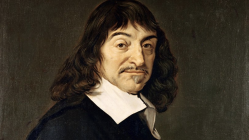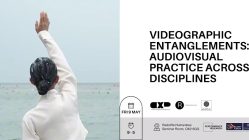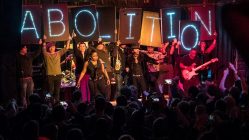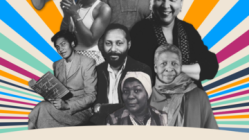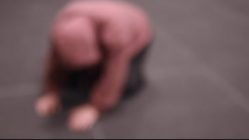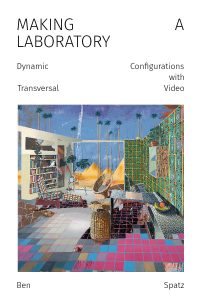
Making a Laboratory: Dynamic Configurations with Transversal Video
Download or buy from Punctum Books
Watch an interview @ auralia.space
Summary of the book:
Making a Laboratory defines a new audiovisual embodied research method that short-circuits experimental practice and video recording to generate new kinds of data and documents. Overturning conventional hierarchies of knowledge, “Dynamic Configurations with Transversal Video” (DCTV) grounds both discursive and audiovisual knowledges within the space of embodied practice, synthesizing insights from historical epistemologist Hans-Jörg Rheinberger and philosopher of science Karen Barad to offer the first rigorous definition of laboratoriality outside a techno-scientific paradigm. In this concise book, nonbinary practitioner–researcher Ben Spatz situates the DCTV method in the context of artistic research and alongside emerging audiovisual methods in other fields, while highlighting its unique characteristics.
Across six focused chapters, Making a Laboratory introduces DCTV as a queer feminist adaptation of Jerzy Grotowski’s “poor” theater laboratory and defines its core elements, drawing on a range of thinkers including Giorgio Agamben, Rebecca Schneider, and Hito Steyerl, in order to examine power, identity, and documentation in lab practice. Drawing from the ethical consent practices of the BDSM community, it lays the groundwork for a radical reinvention of audiovisuality from the perspective of embodiment — the audiovisual body.
Table of contents:
- Two Cuts
- Dynamic Configurations: Notation
- Dynamic Configurations: Elements
- Transversal Video: Somaticizing the Camera
- Transversal Video: The Editor Function
- Towards a Queer Laboratory
Workshop description:
Since 2017, I have been offering workshops introducing the theoretical framework and specific research method described in Making a Laboratory. Participants explore the basic elements of the method “Dynamic Configurations with Transversal Video” (DCTV), including four key relations that structure performing arts and embodied practice; an iterative cycle between lab design and experimental moment; and the analysis of richly co-authored video material. The method is contextualized within a post-scientific definition of laboratoriality.
During the workshops, practical experimentation is augmented by video screenings, showcasing works created out of the 2017 AHRC-funded Judaica Project lab and introducing the videographic Journal of Embodied Research. The workshop is intended to change the way participants think about and work with embodiment, identity, audiovisuality, and knowledge/research.
“Making a Laboratory” events 2017-2020:
- Zurich University of the Arts, Switzerland, 2020 (talk)
- Leiden University, Netherlands, 2020 (workshop)
- University of Gothenburg, Sweden, 2020 (workshop)
- University of Kent, UK, 2020 (talk and workshop)
- Leeds Beckett University, UK, 2020 (talk)
- Royal Central School of Speech and Drama, UK, 2019 (workshop)
- Trier University, Germany, 2019 (talk)
- Lithuanian Academy of Music and Theatre, 2019 (talk and workshop)
- University of Zagreb, Croatia, 2019 (talk)
- University of Brighton, UK, 2019 (workshop)
- Dans Brabant, Netherlands, 2019 (talk)
- University of Bedfordshire, UK, 2018 (talk and workshop)
- Northwestern University, USA, 2018 (talk)
- Ghent University, Belgium, 2018 (talk and workshop)
- University of Aberdeen, UK, 2017 (talk)
If you would like to invite me to present this material at your institution, please get in touch with me via my university research profile.
Image: Matthias Weischer


